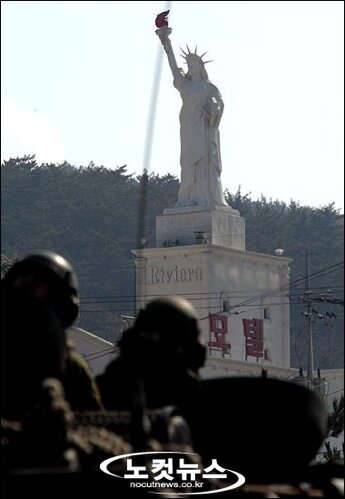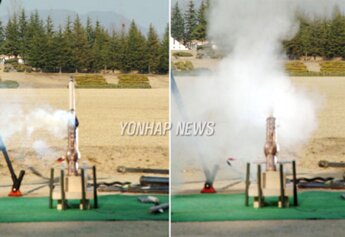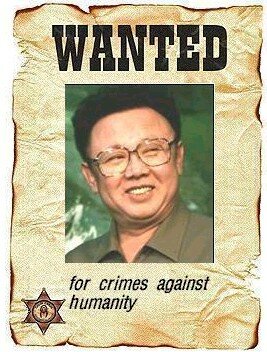Last weekend in Shanghai, China hosted a conference on protecting intellectual property officials and signed the Shanghai Initiative on intellectual property protection.
Hundreds of law enforcement officers, as well as representatives from WIPO and Interpol were in town for two dull days of lectures and possibly a couple of nights of video karaoke (using non-pirated discs, we hope).
By pure coincidence, Shanghai authorities cracked down on two pirated DVD outlets that cater largely to foreigners.:
We’re not sure if the cops just really wanted a cup of coffee or if there is some new law that prohibits fake DVDs being sold at ridiculously expensive prices. We are a little late in getting to this — we were enjoying the nice weekend weather — but it was reported over the weekend that authorities in Changning District fined two “coffee clubs” on Wednesday for selling pirated DVDs:

AsiaPundit has visited the Ka De Club for research purposes (hoping to do some research on the complete second season of Battlestar Galactica, if you must know). AP will note that the coffee shop did carry a better selection of DVDs than the average street-stall vendors.
Also by pure coincidence, the authorities shut down the on-line version of the Xiangyang Market, which like its brick-and-mortar counterpart was selling fake products. Fons points to this item:
SHANGHAI, CHINA — Shanghai authorities have shut down an online store named for a downtown market notorious for selling counterfeit products.
The Chinese-language Web site, http://www.xymarket.cn, had advertised counterfeit products similar to those found in Xiangyang Road market, an open-air bazaar popular among tourists for its wide selection of bargain-priced, “name brand” t-shirts, shoes, coats and other items.
Visitors to the Web site on Friday received an error message saying it was “either nonexistent or closed down.”
By pure coincidence, Friday was also the start of the intellectual property conference.
Strangely, AsiaPundit hasn’t seen this large a crackdown on counterfeit products since hundreds of overseas guests from the entertainment industry were in town for the Shanghai Film Festival.
(photo stolen from China Daily)
Technorati Tags: asia, northeast asia, china, piracy, shanghai
 KUALA LUMPUR, Malaysia - A Malaysian man said he nearly fainted when he received a U.S. $218 trillion phone bill and was ordered to pay up within 10 days or face prosecution, a newspaper reported Monday.
KUALA LUMPUR, Malaysia - A Malaysian man said he nearly fainted when he received a U.S. $218 trillion phone bill and was ordered to pay up within 10 days or face prosecution, a newspaper reported Monday.

 BEIJING, April 11 — Thanks to a growing interest in gourmet foods, China is aiming to become one of the world’s biggest producers of foie gras made from goose liver in the coming years.
BEIJING, April 11 — Thanks to a growing interest in gourmet foods, China is aiming to become one of the world’s biggest producers of foie gras made from goose liver in the coming years.
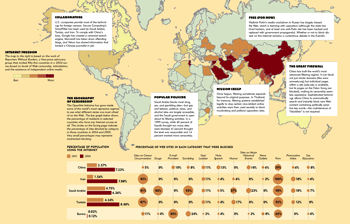
 I’m sorry for vanishing from this space so suddenly last week. The truth was that, by the time of Mr Thaksin’s resignation last Tuesday night, I was feeling very peculiar, to an extent that could not fully be explained by my elation at witnessing history in the making.
I’m sorry for vanishing from this space so suddenly last week. The truth was that, by the time of Mr Thaksin’s resignation last Tuesday night, I was feeling very peculiar, to an extent that could not fully be explained by my elation at witnessing history in the making.
 It’s not Indah Ludiana. It’s not Sarah Azhari. And it’s not even Tiara Lestari.
It’s not Indah Ludiana. It’s not Sarah Azhari. And it’s not even Tiara Lestari. Critics say the Chinese television incites hatred; Rogers’ response is that people can “choose not to watch,” says the CP story.
Critics say the Chinese television incites hatred; Rogers’ response is that people can “choose not to watch,” says the CP story. Go to the main entry of authority ( A small passage between building and parking.) You can see many agents (or say dalal), you can contact to any cameraman, shopkeeper or roadvendor. I got one (cameraman introduced him with me). I started talking with him, he said sit down don’t talk like this now a days position are strict. We fix up the deal in Rs.490. Then he introduced me to his boss. He asked Rs.600, I said no I was told Rs.490 only. He agreed on that. He took my papers and hand over those to his guy to get the entry in official books, and told me to bring my car for test.
Go to the main entry of authority ( A small passage between building and parking.) You can see many agents (or say dalal), you can contact to any cameraman, shopkeeper or roadvendor. I got one (cameraman introduced him with me). I started talking with him, he said sit down don’t talk like this now a days position are strict. We fix up the deal in Rs.490. Then he introduced me to his boss. He asked Rs.600, I said no I was told Rs.490 only. He agreed on that. He took my papers and hand over those to his guy to get the entry in official books, and told me to bring my car for test. HONG KONG (MarketWatch) — The family of a Chinese journalist jailed for leaking state secrets is considering legal action against U.S. Internet portal Yahoo Inc. (YHOO) for its alleged role in providing information to authorities that led to his conviction, a Hong Kong lawyer said Monday.
HONG KONG (MarketWatch) — The family of a Chinese journalist jailed for leaking state secrets is considering legal action against U.S. Internet portal Yahoo Inc. (YHOO) for its alleged role in providing information to authorities that led to his conviction, a Hong Kong lawyer said Monday. Come to Shanghai. Come to Shanghai, now! No, this is not a travel industry advertisement, nor a paid promotion of any kind. It is a warning, and those who don’t heed it soon will forever miss what has made this arguably Asia’s greatest city, as its leaders gird to complete a breakneck and all-but- declared bid for the title of the world’s greatest.
Come to Shanghai. Come to Shanghai, now! No, this is not a travel industry advertisement, nor a paid promotion of any kind. It is a warning, and those who don’t heed it soon will forever miss what has made this arguably Asia’s greatest city, as its leaders gird to complete a breakneck and all-but- declared bid for the title of the world’s greatest. DETROIT—Detroit, a former industrial metropolis in southeastern Michigan with a population of just under 1 million, was sold at auction Tuesday to bulk scrap dealers and smelting foundries across the United States.
DETROIT—Detroit, a former industrial metropolis in southeastern Michigan with a population of just under 1 million, was sold at auction Tuesday to bulk scrap dealers and smelting foundries across the United States.


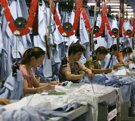 For a start, the bilateral imbalance may be overstated. After ironing out the wide discrepancies between both sides’ data, Oxford Economics, a consultancy, finds China’s share has hovered at about a fifth of the total US merchandise deficit since 1995. That suggests the former is as much a result as a cause of the latter’s growth. Heaping all the blame on China would be off the mark, even if US manufacturing were dying.
For a start, the bilateral imbalance may be overstated. After ironing out the wide discrepancies between both sides’ data, Oxford Economics, a consultancy, finds China’s share has hovered at about a fifth of the total US merchandise deficit since 1995. That suggests the former is as much a result as a cause of the latter’s growth. Heaping all the blame on China would be off the mark, even if US manufacturing were dying.